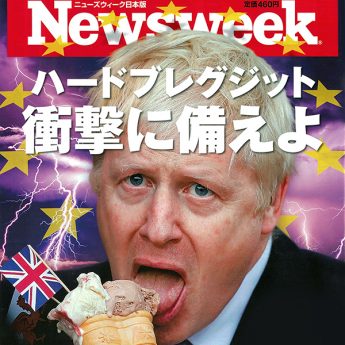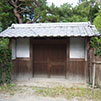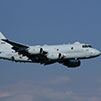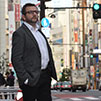More than four years after a report by a United Nations Special Rapporteur expressed concern about press freedoms in Japan—with the system of kisha clubs (reporters clubs) singled out for particular censure—critics say little has changed.
All governments strive to influence the messages that appear on its citizens television screens or the pages of its newspapers, but the May 2017 report by David Kaye to the UN Human Rights Council was withering in its assessment of press clubs attached to Japanese government ministries and agencies.
The report accused Japan of “manipulation of media outlets through an opaque and clique-plagued system of press clubs and incentives to practice ‘access journalism’”.
Foreign concern
The situation is arguably even more difficult for foreign correspondents, with domestic media able to commit a reporter to every government ministry and agency, but overseas media typically having a single journalist in Japan and unable to access every significant news event.
Leo Lewis, who is Japan Tokyo correspondent for the Financial Times, said the kisha club system “adds a truly unnecessary layer of red tape or admin to what should be routine registrations for press events, giving away the fact that these are fundamentally closed when there is really no reason for them not to be completely open”.
That often results in foreign media being granted “observer” status and not permitted to ask the harder questions that their local counterparts might shy away from.
“The second reason—and I would say most important these days—is that it creates an unnecessary layer of opaqueness over the transmission of information, and makes Japanese media collusive in the protection of officials and others who do not deserve anonymity. More so than ever, there needs to be accountability for who said what”.
Rupert Wingfield-Hayes, the BBC’s Tokyo correspondent, agrees that unfettered access to information should be the biggest concern.
“The deeper problem is that it has created and maintains a cozy relationship between Japan’s powerful bureaucrats and a chosen group of friendly media, who depend on access and are thereby captured by the organisations they are supposed to be keeping watch on”, he said.
“The result is that most of Japan’s fourth estate is not a fourth estate at all, but part of the government information ecosystem.
“Access journalism is a problem in many countries”, he conceded, pointing to the lobby system in Britain and the White House press corps in the US. He added, “Japan has taken this to a totally other level”.
Quoting another long-term foreign correspondent, Wingfield-Hayes said that Japanese journalists who rely on the kisha club system “are like chicks in a nest waiting to be fed”.
“In that respect, I think the system is incompatible with a healthy democracy,” he added.

History
Japan’s kisha clubs can be traced back to 1890 and the ban imposed by the first Imperial Diet on reporters. Journalists banded together, with the support of newspaper companies, to form the first press club and to lobby for access. The Allied Occupation administration attempted to do away with kisha clubs immediately after the war, but dropped the plan under pressure from the Japanese government and news organisations.
The issue was subsequently taken up by The Foreign Correspondents’ Club of Japan (FCCJ) and the Foreign Press in Japan (FPIJ), with overseas reporters particularly unhappy at the lack of access to events surrounding the wedding in 1959 of Crown Prince Akihito and Princess Michiko.
Kenta Yamada, a professor in the department of journalism at Senshu University, says the system of kisha clubs engenders “a sense of security” between ministries and the media as there is a “relationship of trust”, while clubs also provide a working space within the institution.
Yamada told BCCJ ACUMEN that the issue is less a problem of press clubs but more related to access to press conferences when there is high demand and entry is regulated by the club itself.
Looking ahead
Kazuo Kodama, a former press secretary at the Ministry of Foreign Affairs who went on to serve as Japan’s ambassador to the UN, to the OECD and the European Union, agrees that membership of kisha clubs bestows “privileges” on journalists assigned to ministries, but points out that when the Democratic Party was elected in 2009, new Prime Minister Yukio Hatoyama opened press conferences at the Prime Minister’s Office to all media, a move that the Ministry of Foreign Affairs copied.
“I think that things are changing”, said Kodama, who is today president of the Foreign Press Centre. “The clubs may not want to change, but they are under constant pressure from outside to be more fair or democratic, especially from the non-mainstream media—freelancers, digital—who feel they have been treated badly”. For the foreign press, that change cannot come soon enough.
Justin McCurry, Japan and Korea correspondent for The Guardian and a member of the FPIJ committee, says kisha clubs are “simply a horrible way of doing journalism” that have in the past unnecessarily hampered his ability to do his job. But the solution is relatively straightforward, he believes.
“Open the ministries and agencies up to any journalist who can prove they are a legitimate reporter, including foreigner reporters”, he said. “We are not looking for special treatment and there would be no need to translate all documents into English, but opening up would at least give us a chance to do what we are here for”.






